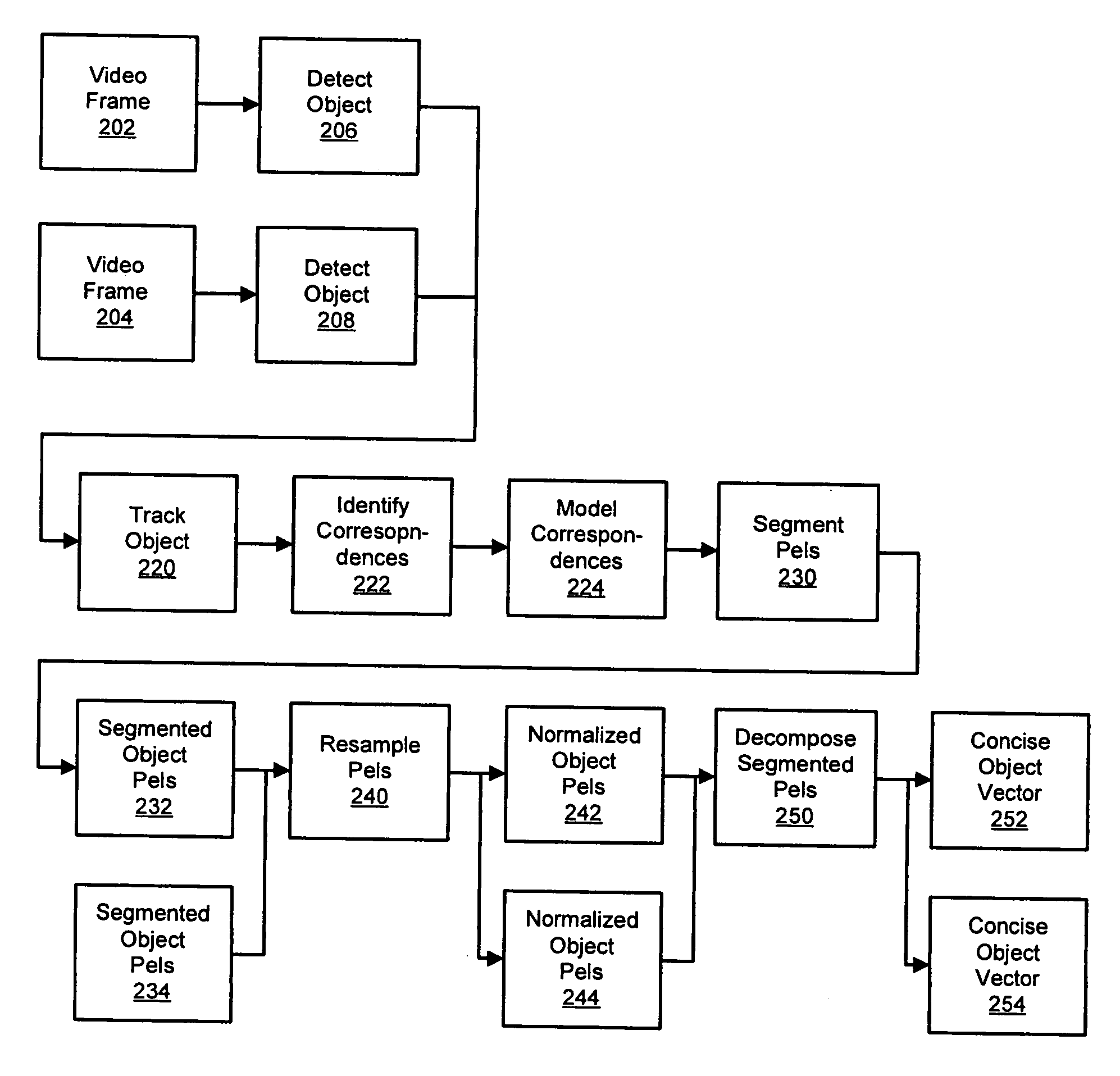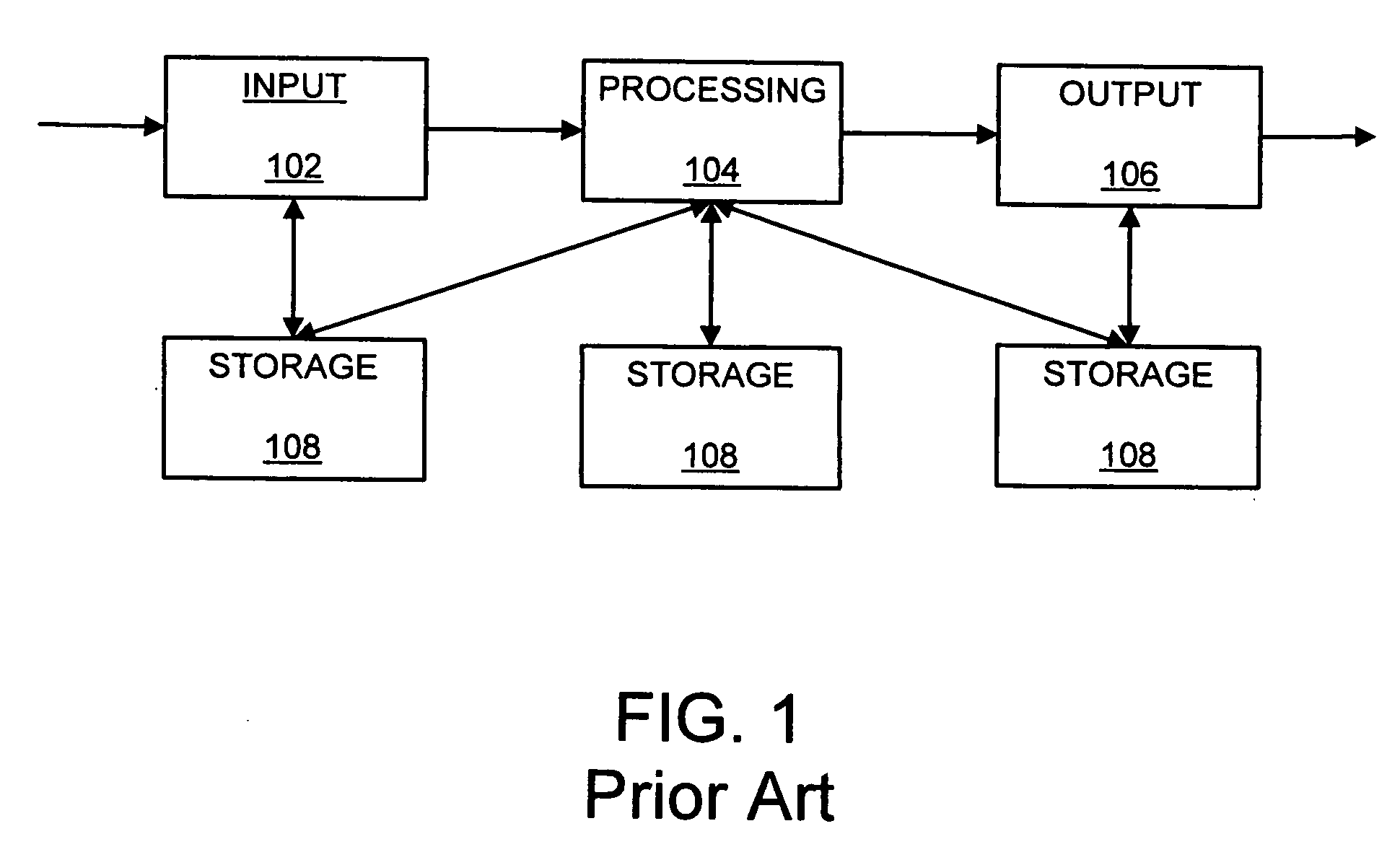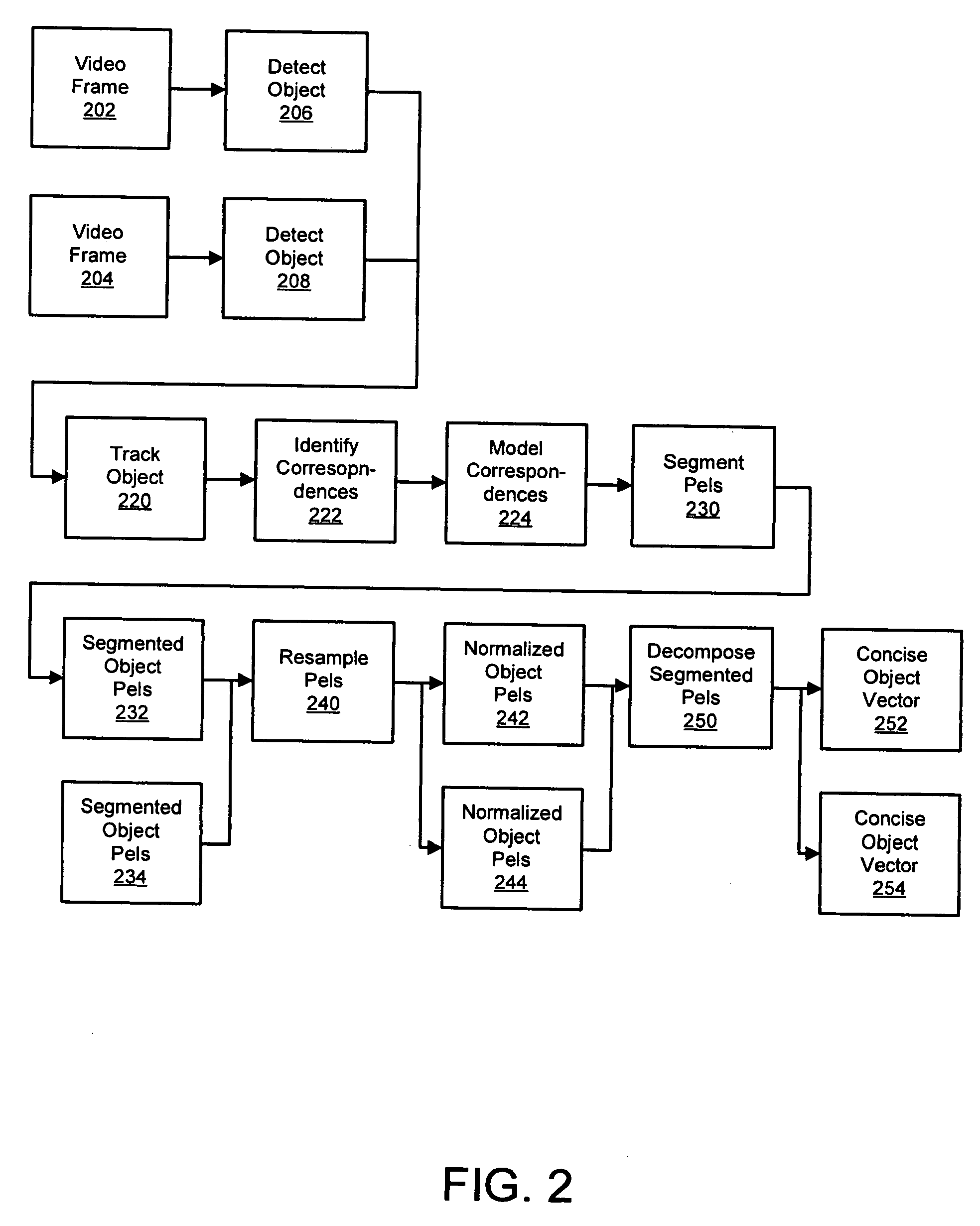Apparatus and method for processing video data
a video data and apparatus technology, applied in the field of digital signal processing, can solve the problems of concentrated loss of accuracy in the parts of video signals that are perceptually irrelevant, and achieve the effects of increasing the robustness and applicability of linear decompositional methods, reducing the cost of processing, and improving the degree of automation
- Summary
- Abstract
- Description
- Claims
- Application Information
AI Technical Summary
Benefits of technology
Problems solved by technology
Method used
Image
Examples
Embodiment Construction
[0037] In video signal data, frames of video are assembled into a sequence of images usually depicting a three dimensional scene as projected, imaged, onto a two dimensional imaging surface. Each frame, or image, is composed of picture elements (pels) that represent an imaging sensor response to the sampled signal. Often, the sampled signal corresponds to some reflected, refracted, or emitted energy, (e.g. electromagnetic, acoustic, etc) sampled by a two dimensional sensor array. A successive sequential sampling results in a spatiotemporal data stream with two spatial dimensions per frame and a temporal dimension corresponding to the frame's order in the video sequence.
[0038] The present invention as illustrated in FIG. 2 analyzes signal data and identifies the salient components. When the signal is comprised of video data, analysis of the spatiotemporal stream reveals salient components that are often specific objects, such as faces. The identification process qualifies the existe...
PUM
 Login to View More
Login to View More Abstract
Description
Claims
Application Information
 Login to View More
Login to View More - R&D
- Intellectual Property
- Life Sciences
- Materials
- Tech Scout
- Unparalleled Data Quality
- Higher Quality Content
- 60% Fewer Hallucinations
Browse by: Latest US Patents, China's latest patents, Technical Efficacy Thesaurus, Application Domain, Technology Topic, Popular Technical Reports.
© 2025 PatSnap. All rights reserved.Legal|Privacy policy|Modern Slavery Act Transparency Statement|Sitemap|About US| Contact US: help@patsnap.com



